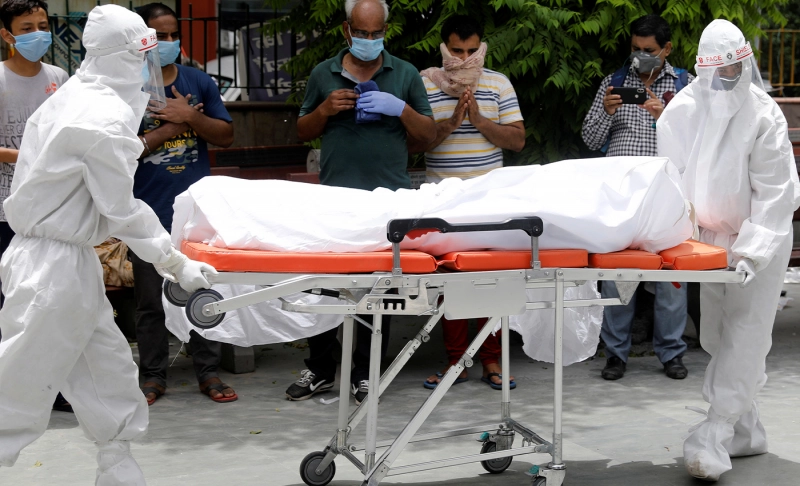By: Devika Kandelwal
December 16 2020
True: Dead bodies cannot spread COVID-19.

The Verdict True
There is scant evidence about transmitting COVID-19 through handling dead bodies.
There is scant evidence about transmitting COVID-19 through handling dead bodies.Transmission of the SARS-CoV-2 virus can occur directly, indirectly, or via close contact with the secretions—such as saliva and respiratory secretion, and respiratory droplets—discharged from an infected person. Indirect contact transmission involves contact with fomites. According to the World Health Organization (WHO), except from diseases such as Ebola, Marburg, and cholera, dead bodies are generally not infectious. Only the lungs of patients with pandemic influenza can be infectious if mishandled during an autopsy. The potential risk of transmission related to the handling of bodies of deceased persons with suspected or confirmed COVID-19 is considered low. It can be associated with either direct contact with human remains or bodily fluids where the virus is present or via direct contact with contaminated fomites. As viable SARS-CoV-2 may persist on surfaces for days, there is the possibility that the virus also remains on deceased bodies. Therefore, unnecessary contact with bodies should be minimized by those not wearing personal protective equipment (PPE). Those in direct contact with deceased cases of COVID-19 (both suspected or confirmed) should be protected from exposure to infected bodily fluids, contaminated objects, or other contaminated environmental surfaces through wearing appropriate PPE. During standard handling, the risk associated with the transmission of droplets or aerosol from the airways of the deceased is considered low. Conversely, aerosol-generating procedures or procedures that can lead to splashes during post-mortem examinations carry higher risk and require appropriate PPE. The COVID-19 pandemic has given rise to a lot of potentially dangerous misinformation. For reliable advice on COVID-19 including symptoms, prevention and available treatment, please refer to the World Health Organisation or your national healthcare authority.


